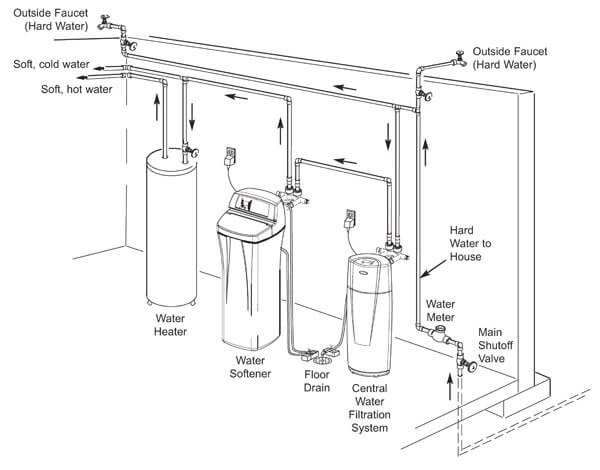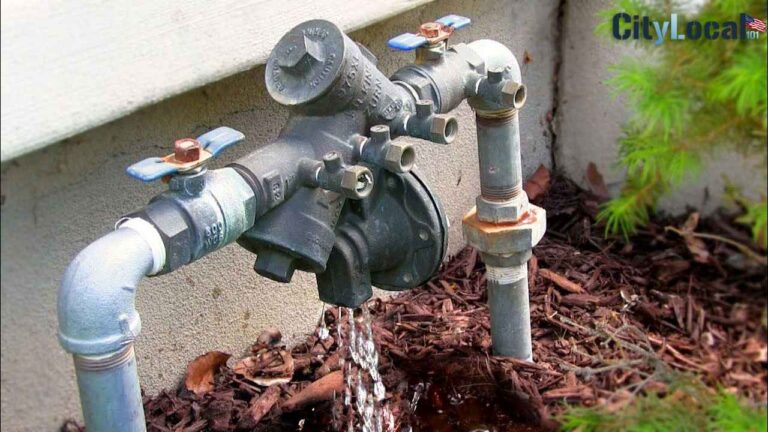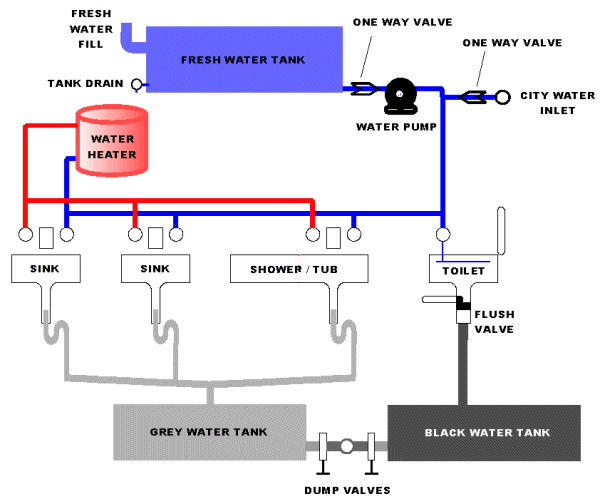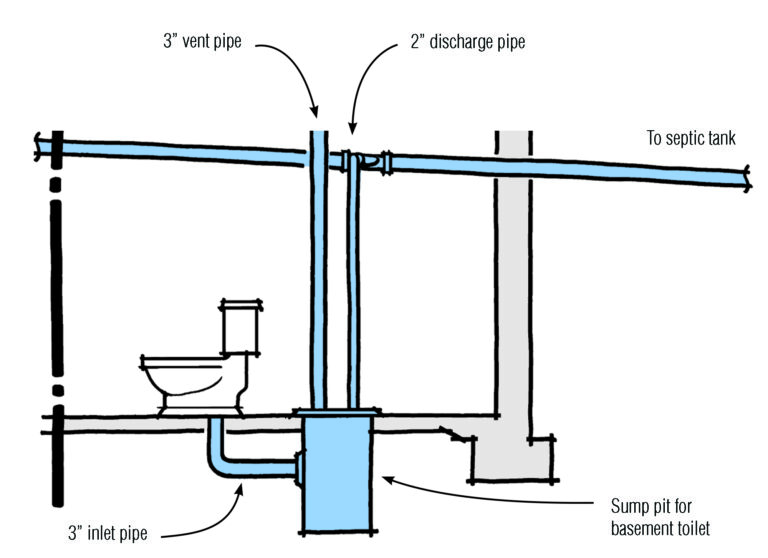Can I Install Water Softener Myself?
Installing a water softener can be a great way to reduce hard water buildup in your plumbing system and appliances. While a professional installation is the best option, you may be wondering if it is possible to install a water softener yourself. The answer is yes, it is possible to install a water softener yourself, but there are some important considerations and steps to follow in order to do it correctly. This includes determining the size of water softener you need, acquiring the necessary parts and components, and following the instruction manual carefully. With proper planning and preparation, it is possible to install a water softener yourself.
What is a Water Softener?
A water softener is a device that is used to reduce the hardness of water by removing minerals that cause the water to be hard. Hard water is caused by calcium and magnesium ions that dissolve in the water, making it difficult to lather soap and leaving behind residue on surfaces. Installing a water softener can help reduce the effects of hard water, making it easier to use and more pleasant to shower in.
When considering a water softener installation, it is important to understand how it works and what is involved. An ion exchange process is used to remove the calcium and magnesium from the water, replacing them with sodium ions. This process requires the use of a resin bed and a brine tank, which are typically installed in a basement or garage. In addition, the system needs to be set up to remove the minerals from the water, which can be done using a manual or automatic timer.
Installing a water softener can be a complicated process, and it is recommended that it is done by a professional. However, if you are handy and understand the process, it may be possible to install it yourself. The most important factor when it comes to water softener installation is to ensure that it is done correctly, as a poor installation can cause damage to your plumbing system.
Benefits of Installing a Water Softener
Installing a water softener in your home is a great way to improve the quality of your water. Water softeners reduce the amount of minerals that can cause hard water and its associated problems. Hard water can cause a variety of issues, from dry skin and hair to mineral buildup in your appliances. A water softener helps to reduce these issues, making your water cleaner and healthier for you and your family. There are many benefits to installing a water softener, including improved water quality, reduced energy costs, and increased longevity of your appliances.
When it comes to water softeners, there are a few different options to choose from. Depending on your budget and the size of your home, you can choose from salt-based, potassium-based, or no-salt water softeners. All of them work to reduce the minerals in the water that cause hard water and its associated issues. Installing a water softener can make a big difference in the quality of your water, making it healthier and more enjoyable to use.
Not only can installing a water softener improve the quality of your water, but it can also save you money in the long run. By reducing the minerals that can cause buildup in your appliances, water softeners help to extend the life of your plumbing fixtures and appliances. This means that you won’t have to replace them as frequently, saving you money in the long run.
Installing a water softener can also reduce energy costs, as hard water requires more energy to heat. By reducing the minerals in the water, the temperature of the water can be more easily maintained. This reduces the amount of energy needed to heat the water, leading to lower energy bills.
Overall, installing a water softener is a great way to improve the quality of your water and reduce the amount of energy needed to maintain it. From improved water quality to reduced energy costs, there are many benefits to installing a water softener in your home.
What is Involved in Installing a Water Softener?
When it comes to home improvement projects, replacing a water softener is a relatively straightforward job. But if you don’t know what’s involved in the installation process, it can be intimidating.
The most important factor to consider when installing a water softener is the size of the unit. It’s important to make sure the softener you choose is the correct size for your home. An undersized unit will not be able to handle the water flow in your home, while an oversized unit will be too powerful and can cause problems with your plumbing.
Once you’ve selected the correct size water softener, you’ll need to install it. This typically involves attaching the unit to a dedicated power supply, then connecting it to your home’s water supply. You’ll also need to connect the unit to a drain so that the brine it produces can be discharged safely.
Finally, you’ll need to set the water softener’s settings. This includes selecting the hardness setting, the regeneration frequency, and the salt dosage. It’s important to make sure the settings are correct in order to get the best performance from your water softener.
In summary, installing a water softener requires some knowledge and experience. If you don’t feel comfortable doing it yourself, it’s best to hire a professional to do the job. A professional plumber or contractor can ensure the job is done correctly and can provide helpful tips for maintaining your water softener in the future.
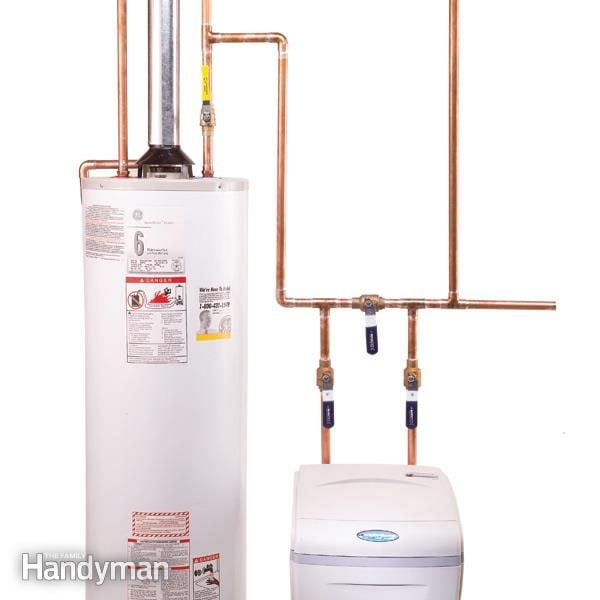
Considerations When Installing a Water Softener
If you’re considering installing a water softener in your home, there are a few important considerations to keep in mind. The most important factor is whether or not you have the proper tools and knowledge to install the softener. Although it is possible to install a water softener yourself, it is often recommended that you hire a professional to do the job. This will ensure that the installation is done properly.
In addition to the necessary tools and know-how, you need to consider the size of the water softener. The size of the softener will depend on the amount of water that will be processed through the system. It is important to get the right size so that it will be effective. If the softener is too small, it will not be able to effectively soften the water.
It is also important to consider the maintenance that will be required. Softeners need to be regularly serviced and maintained to ensure they are working properly. This can involve cleaning the filters, replacing parts, and checking the salt levels. Depending on the type of softener, the maintenance will vary.
Finally, it is important to consider the cost of the installation and the ongoing maintenance costs. Although installing a water softener can be a cost-effective way to improve the quality of your water, it is important to be aware of the costs associated with the installation and maintenance of the softener. This will help you make an informed decision about whether or not you should install a water softener.
Cost of Installing a Water Softener
Installing a water softener can be a cost-effective way to reduce the hardness of your water. But before you take on the task of installing a water softener yourself, you should consider the cost. The cost of a water softener depends on the type you purchase, the size of the system, and any additional installation costs.
The cost of the water softener itself can range from $400 to $4,000. The price will depend on the size and type of the system – water softeners that use salt or potassium chloride generally cost more than non-salt systems. Additionally, you must factor in the cost of installation and any additional parts or materials you may need.
Installation costs can vary greatly, depending on the complexity of the job and the type of water softener you choose. Installing a water softener yourself can help keep costs down, but if you don’t have the experience or the right tools, you may end up spending more than if you had hired a professional to do the job.
Before you decide to install a water softener yourself, you should weigh the costs of hiring a professional versus doing it yourself. It can be a great way to save money, but you should make sure you have the right tools and knowledge before you start the job.
Should I Install a Water Softener Myself or Hire a Professional?
Making the decision to install a water softener in your home is an important one. It can greatly improve the quality of your water, but it can also be a costly and time-consuming endeavor. If you are considering installing a water softener, you may be wondering whether it’s better to hire a professional or do it yourself.
The answer to this question depends on a few different factors. If you are comfortable working with tools and know how to read and follow instructions, you may be able to install a water softener yourself. However, if you are not confident in your abilities, you should consider hiring a professional to do the job. They will have the skills and knowledge to get the job done correctly and safely.
It is also important to factor in the cost of hiring a professional versus doing the job yourself. While professional installation may cost more upfront, it could save you money down the line if your water softener is installed properly and working efficiently. Additionally, if you make a mistake while installing the water softener yourself, you may end up paying more in repairs than you would have if you had hired a professional in the first place.
Deciding whether to install a water softener yourself or hire a professional will depend on your comfort level with tools and instructions, as well as the cost of hiring a professional. Weighing the pros and cons of each option will help you make the best decision for your home and budget.
FAQs About the Can I Install Water Softener Myself?
1. Can I install a water softener myself?
Yes, depending on the type of water softener you purchase, you may be able to install it yourself. However, if you are unsure of the installation process or if the system requires specialized tools or knowledge, it is best to hire a professional.
2. What type of tools will I need to install a water softener?
The tools you will need to install a water softener depend on the type of softener you have. Generally, you will need a wrench, an adjustable wrench, a screwdriver, a drill, and a level.
3. Are there any safety precautions I should take when installing a water softener?
Yes, it is important to take proper safety precautions when installing a water softener. This includes wearing protective eyewear, gloves, and long pants. Additionally, be sure to read and follow the manufacturer’s instructions carefully before beginning the installation process.
Conclusion
Installing a water softener may seem complicated, but with the right guidance and tools it can be a relatively easy and straightforward process. There are many tutorials and resources available online that can help guide you through the installation process. However, if you are not comfortable with the process, it may be best to hire a professional to do the job for you.

